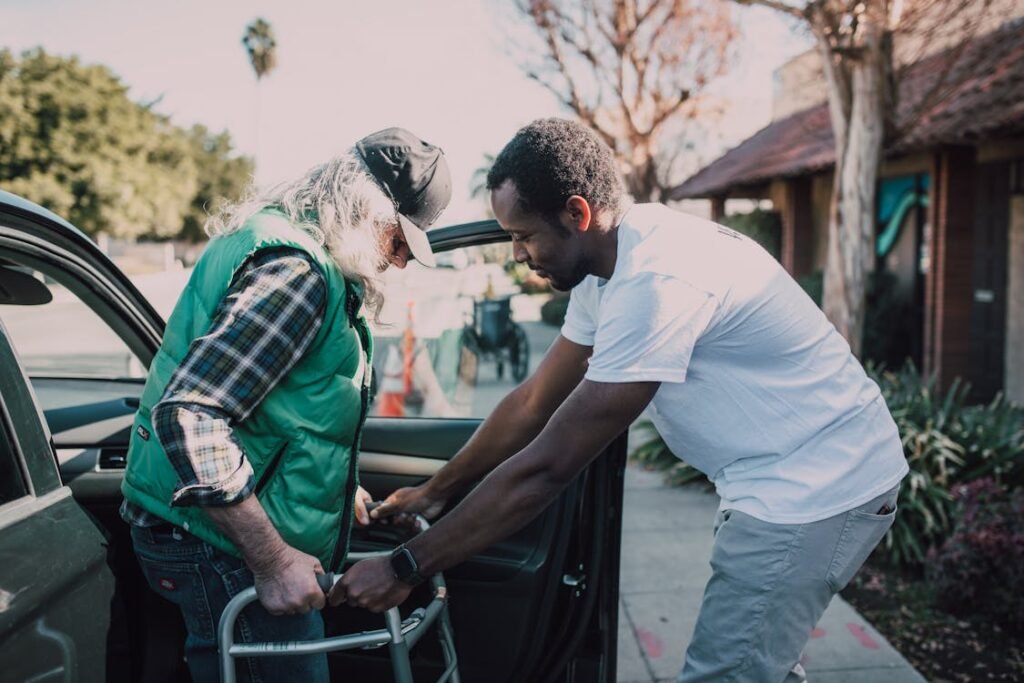Losing a limb changes many aspects of life, but one thing that remains constant is the human need for purpose and connection. After an amputation, some people struggle with feelings of isolation, self-doubt, or uncertainty about their future. While physical rehabilitation is essential, emotional well-being plays an equally important role in the journey toward a fulfilling life. One of the most powerful ways to regain confidence, build resilience, and find meaning after limb loss is through volunteering.
Helping others can transform the way amputees see themselves. Instead of focusing on limitations, volunteering shifts attention to strengths, skills, and the ability to make a difference. It fosters a sense of community, improves mental health, and creates opportunities to inspire and uplift others. Whether it is mentoring fellow amputees, assisting in social programs, or advocating for accessibility, acts of service have profound psychological benefits.
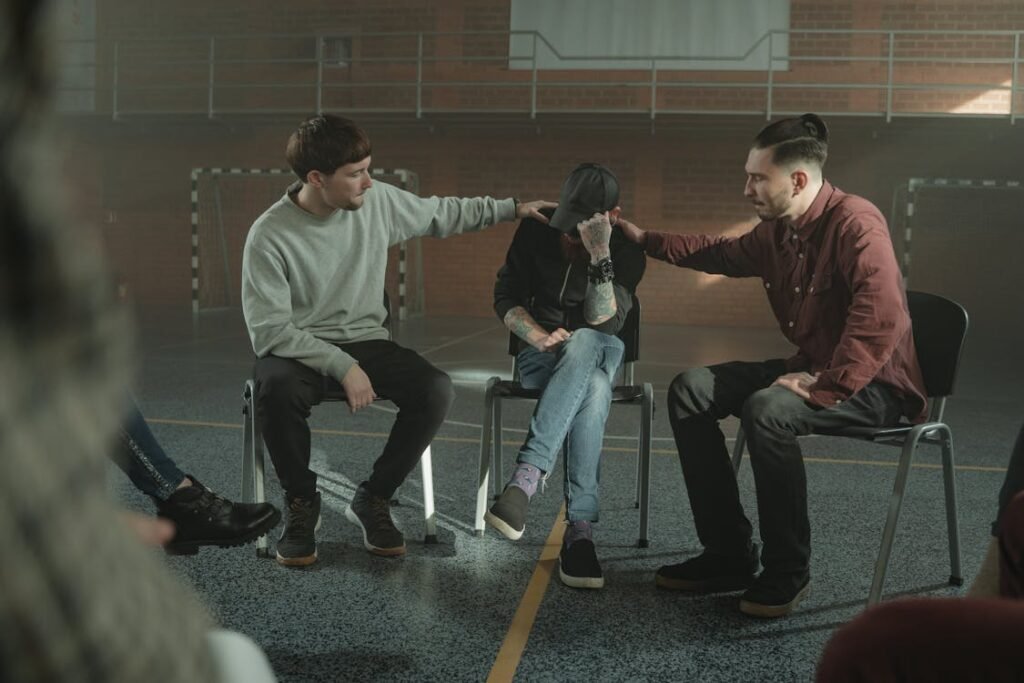
Rebuilding Confidence Through Helping Others
After limb loss, confidence can take a hit. Simple tasks that once felt effortless may now require adaptation and patience. In the early stages, it is easy to focus on what has changed rather than what remains.
However, volunteering provides a powerful way to shift this perspective. By stepping into a role where others rely on their support, amputees begin to see their own value beyond physical ability.
The Shift from Receiving Help to Giving It
In the months following an amputation, many people go through a period of adjustment where they rely on doctors, therapists, family members, and friends for assistance.
This experience, while necessary, can sometimes leave individuals feeling dependent or unsure of their place in the world. Volunteering reverses this dynamic.
Instead of being on the receiving end of support, amputees become the ones offering help. This change in role restores a sense of capability and self-worth.
One amputee, who once struggled with self-doubt after losing his leg, found new confidence in mentoring children with disabilities. Initially unsure of what he could offer, he quickly realized that his journey was an inspiration.
He shared stories about learning to walk with a prosthetic, overcoming frustration, and setting personal goals. The children looked up to him not because of what he had lost, but because of his strength, perseverance, and ability to move forward.
Each conversation reminded him that his experiences had meaning—and that his struggles could help others find hope.
Regaining a Sense of Control
Losing a limb can feel like losing control over life itself. Medical appointments, rehabilitation schedules, and learning to use a prosthetic create a sense of dependence on external factors.
Volunteering offers a way to regain that control. When an amputee chooses to give their time, skills, or knowledge to a cause, they make an active decision about how to contribute to the world.
A woman who lost her arm in an accident struggled with feeling powerless in her early recovery. Everything in her life revolved around healing, and she longed for something outside of medical progress.
She began volunteering at a local food bank, helping organize supplies and interact with those in need. The experience reminded her that, despite her limb loss, she could still provide valuable service.
She was no longer just someone adjusting to a new body—she was a person making an impact.
Finding Strength in Shared Experiences
For many amputees, volunteering within the disability community provides a unique opportunity to turn personal challenges into a source of empowerment.
Connecting with others who are facing similar struggles builds a sense of camaraderie. It reinforces the idea that no one is truly alone in their journey.
A man who lost his hand in a workplace accident initially avoided conversations about his amputation. However, after joining a support group as a mentor, he saw the power of shared experiences.
By listening to and guiding new amputees, he discovered his own strength. Instead of seeing his amputation as a setback, he began to view it as a story of resilience—one that could help others navigate their own journeys with hope.

Improving Mental Health Through Acts of Service
Beyond rebuilding confidence, volunteering has a profound effect on mental health. The emotional impact of limb loss can be overwhelming, often leading to feelings of isolation, sadness, or even depression.
While professional therapy and social support play a role in healing, engaging in acts of service provides a unique and deeply fulfilling way to improve emotional well-being.
Reducing Feelings of Isolation
One of the biggest challenges for many amputees is the sense of being different from those around them. After an amputation, social interactions can feel awkward, and some individuals withdraw from family and friends due to fears of being treated differently.
However, volunteering creates a natural way to reconnect with others in a meaningful setting.
A woman who lost her leg due to illness found herself avoiding social situations, believing that no one could understand her experience.
When she started volunteering at a rehabilitation center for new amputees, everything changed. Instead of feeling isolated, she became part of a community where people shared similar struggles.
Helping others navigate their early stages of limb loss reminded her that she was not alone. The friendships she built in this environment strengthened her emotional resilience, turning what once felt like a lonely battle into a shared journey.
Boosting Mood and Reducing Anxiety
Scientific studies have shown that helping others triggers the release of endorphins—the brain’s natural “feel-good” chemicals. Volunteering promotes a sense of joy, calmness, and fulfillment, all of which help combat stress and anxiety.
For amputees who may experience emotional highs and lows, giving back provides a powerful mental reset.
A man who had struggled with phantom limb pain and post-amputation anxiety found that volunteering at an animal shelter gave him an unexpected sense of peace.
Spending time caring for the animals, helping with adoptions, and interacting with visitors took his focus off his own discomfort. The simple act of giving his time to another living being reminded him that joy could still be found in everyday moments.
Creating a Sense of Purpose
Limb loss often forces individuals to reassess their goals and life direction. Some careers become difficult to continue, while certain hobbies may require adaptation.
This transition can leave people questioning their sense of purpose. Volunteering offers a way to rediscover meaning by contributing to something greater than oneself.
A retired teacher who lost her hand in an accident struggled with the idea of no longer being able to write on a chalkboard or grade papers.
Teaching had been her passion for decades, and she felt lost without it. However, when she started tutoring children at a local community center, she realized that her skills and wisdom were still valuable.
Her ability to connect with students had nothing to do with her physical abilities—it came from her knowledge, patience, and kindness. Through volunteering, she found a renewed sense of identity and a way to continue making a difference.
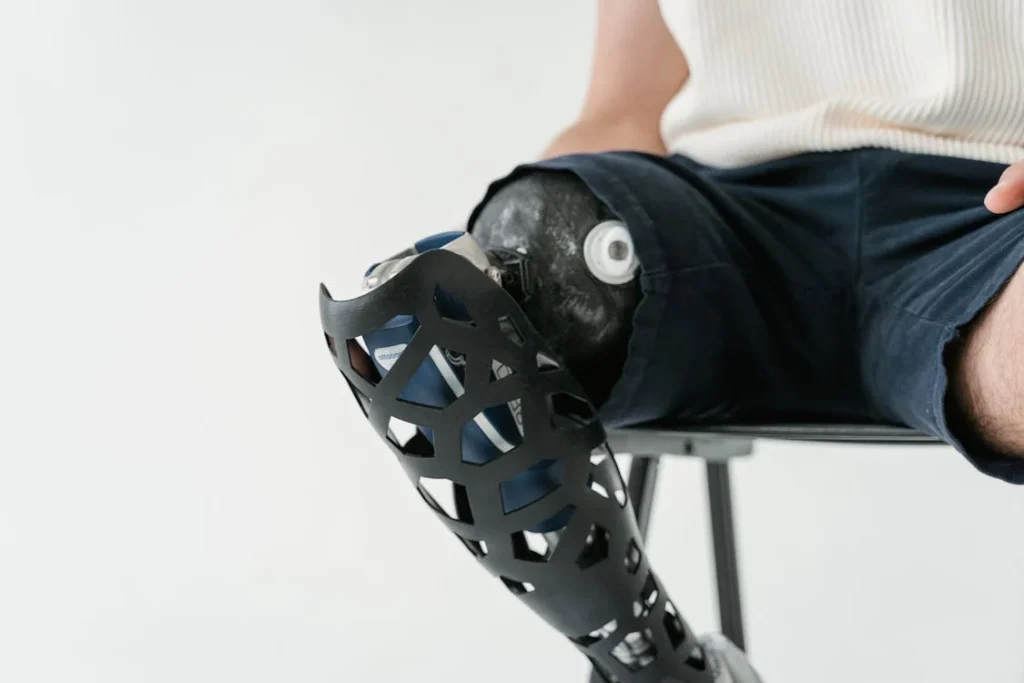
Strengthening Self-Esteem and Personal Growth
Volunteering provides more than just emotional support—it actively strengthens self-esteem. After limb loss, it is common to experience moments of doubt about one’s abilities, appearance, or role in society.
Engaging in acts of service helps break these negative thought patterns by shifting the focus from self-judgment to self-contribution. When amputees see the positive impact they can have on others, it reinforces their own sense of value and purpose.
Overcoming Self-Doubt
Many amputees initially struggle with concerns about how they will be perceived. Will people see them as less capable? Will their prosthetic or limb loss make social situations uncomfortable?
These insecurities can prevent individuals from fully engaging with the world around them. However, volunteering provides an environment where actions speak louder than appearances.
A man who lost his leg in a road accident once feared that people would treat him differently. He hesitated to attend social gatherings, convinced that all eyes would be on his prosthetic.
But when he began volunteering at a community kitchen, he quickly realized that no one cared about his limb loss—they cared about the warmth and kindness he brought to his work.
As he focused on helping others, his insecurities faded. Over time, he stopped worrying about what people thought and started embracing his role in the community.
Developing New Skills and Abilities
Volunteering is not just about giving—it is also about learning. Many amputees discover new talents and interests through their service work.
Whether it is public speaking, organizing events, or mentoring others, volunteering often opens doors to skills that individuals never realized they had. These new abilities contribute to personal growth and a greater sense of confidence.
A woman who lost her arm in an accident had always been shy and reserved. She never saw herself as a leader, and the thought of speaking in front of others made her anxious.
But when she was invited to share her story at an amputation awareness event, she decided to give it a try. To her surprise, she found that people connected deeply with her words.
She went on to become an advocate for disability awareness, using her voice to educate and inspire. What started as a simple act of volunteering turned into a lifelong passion.
Feeling a Renewed Sense of Independence
One of the most empowering aspects of volunteering is the ability to take control of one’s own impact on the world. Instead of feeling defined by their limb loss, amputees who volunteer redefine themselves by their contributions.
They are no longer just individuals adapting to a new reality—they are role models, caregivers, teachers, and advocates.
A retired athlete who lost his leg initially felt disconnected from his former identity. He thought his days of making a difference were over.
But when he began coaching young athletes with disabilities, he found himself stepping into a new version of himself—one that still had purpose, strength, and wisdom to share. The experience reminded him that while his journey had changed, his ability to inspire had not.
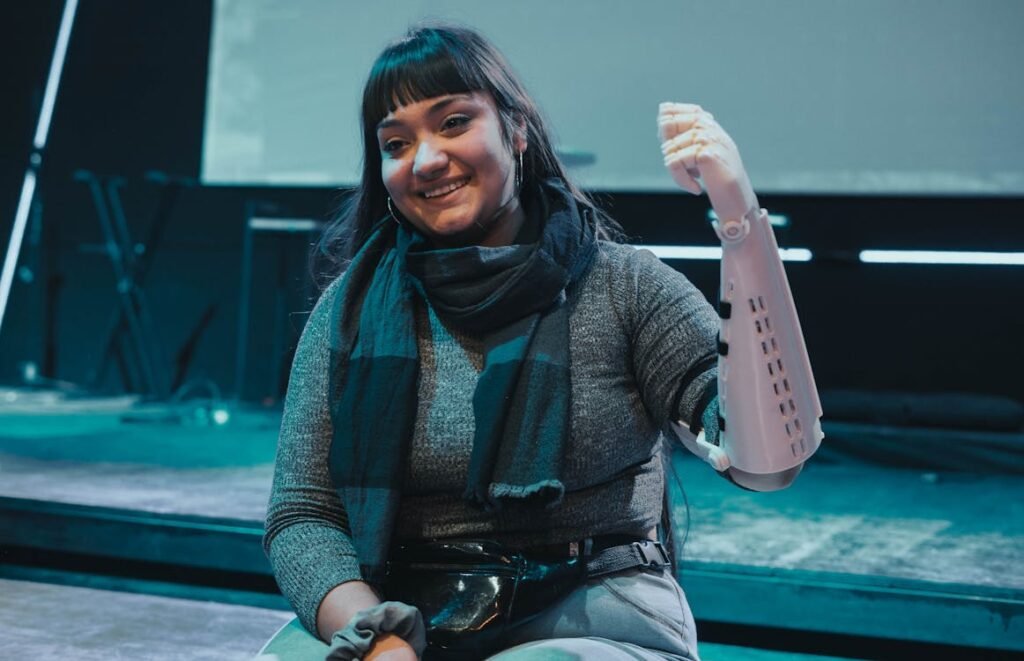
Creating Meaningful Connections Through Volunteering
Beyond personal growth, volunteering helps amputees build meaningful relationships. Strong social connections are essential for emotional well-being, and acts of service naturally bring people together.
Whether working with children, mentoring fellow amputees, or supporting a larger cause, volunteers become part of a network that values teamwork, compassion, and shared purpose.
Finding a Supportive Community
After limb loss, many people feel disconnected from their previous social circles. Friends and family may be supportive, but they may not fully understand the emotional and physical challenges of adapting to life with a prosthetic or limb difference.
Volunteering provides an opportunity to form new relationships with people who share similar values and experiences.
A man who lost his arm in an industrial accident had always been independent. He avoided asking for help, even when he needed it, because he did not want to appear weak.
However, when he started volunteering at a peer support program for new amputees, he discovered the power of shared experiences. Conversations with other volunteers and participants allowed him to let his guard down.
He realized that seeking and offering support were both signs of strength. Through these connections, he found a community that made him feel understood, valued, and empowered.
Strengthening Bonds with Loved Ones
Volunteering does not just create new relationships—it also strengthens existing ones. Many amputees involve their family members in their volunteer efforts, turning service into a shared experience.
This can be especially meaningful for parents, partners, or close friends who want to support their loved one but are unsure how to help.
A father who lost his leg due to complications from diabetes found that his relationship with his teenage son had become strained. His recovery had been long, and they spent less time together than before.
When he decided to volunteer at an organization that provided adaptive sports training, he invited his son to join him. Working together, they bonded over their shared mission of helping others.
Their relationship grew stronger, not because of long conversations about limb loss, but because they were working side by side, creating positive change.
Inspiring Others Through Connection
Many amputees who volunteer become sources of inspiration without even realizing it. Simply showing up, engaging with the world, and demonstrating resilience can make a difference in the lives of others.
By sharing their journey, they encourage people facing similar challenges to believe in their own potential.
A young woman who lost her hand in a motorcycle accident struggled with the idea of being a role model. She did not feel extraordinary—she was just doing her best to adapt.
But when she started volunteering at a school program for children with disabilities, she noticed something remarkable. The kids looked up to her, not because of her prosthetic, but because of her confidence.
They saw someone who had faced difficulty and come out stronger. Through her presence, she gave them the courage to believe in their own abilities.

Turning Pain into Purpose
Volunteering has a way of transforming personal pain into a source of strength. For many amputees, the challenges they once struggled with become the very reason they are able to help others.
What once felt like a setback becomes a story of resilience, a tool for inspiration, and a reminder that life’s difficulties can lead to greater meaning.
Finding Healing Through Service
Many amputees go through periods of grief, frustration, or even anger after their limb loss. These emotions are natural, but when channeled into acts of service, they take on a new form.
Helping others shifts the focus away from personal struggles and toward making a positive impact. It allows individuals to reclaim their narrative—not as victims of circumstance, but as people who have found strength through adversity.
A man who lost his leg in a train accident spent years feeling bitter about what had happened to him. It wasn’t until he started volunteering at a trauma recovery center that his perspective changed.
Listening to others who had survived life-altering injuries, he realized he was not alone. By sharing his own experience, he gave hope to others who were at the beginning of their journey. In turn, he found healing in their shared resilience.
Turning Advocacy into Action
Some amputees discover that their personal struggles highlight larger social issues that need change. Whether it is the need for better accessibility, more affordable prosthetics, or stronger workplace inclusion, many turn to advocacy as a way to make a difference.
Their firsthand experiences give them a unique voice in pushing for solutions that improve the lives of others.
A woman who lost her hand due to a medical condition was frustrated by the lack of affordable prosthetics in her community. Instead of accepting this as an unfortunate reality, she took action.
She partnered with engineers to design low-cost prosthetic solutions and worked with local organizations to make them accessible to those in need.
Through her efforts, countless individuals who once felt hopeless regained mobility and independence. By using her own struggle as motivation, she changed lives—not just her own, but for an entire community.
The Power of Perspective
One of the greatest gifts that volunteering provides is a shift in perspective. When an amputee helps someone else, they are reminded that struggle is universal.
Everyone faces challenges, whether visible or not. Seeing others overcome their own difficulties reinforces the idea that resilience is not about what happens to us—it is about how we respond.
A retired teacher who lost her arm found that volunteering gave her a new way to appreciate life. She worked with children who had been through difficult circumstances and quickly realized that they did not see her as “less than” because of her limb loss.
They saw her as someone who cared, who listened, and who was there for them. Through their eyes, she saw herself not as someone who had lost something, but as someone who still had so much to give.
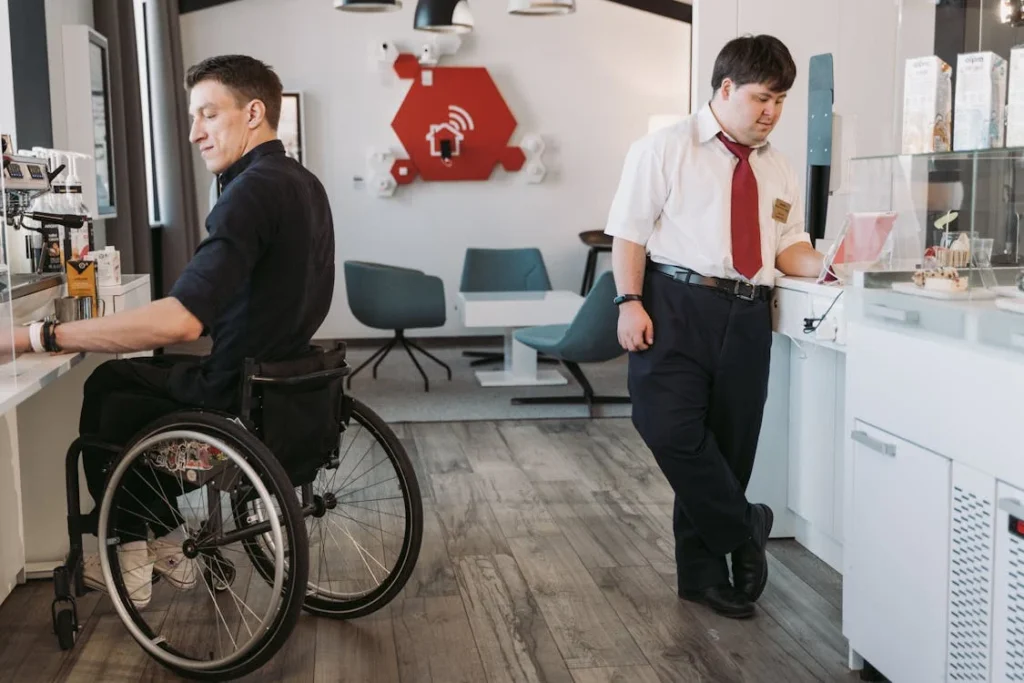
A Life of Meaning Beyond Limb Loss
Volunteering does not just help amputees regain confidence and heal—it creates a long-term sense of purpose that extends far beyond their own personal journey.
Through acts of service, they prove to themselves and others that limb loss does not define their abilities or limit their capacity to make a difference.
The impact they have on others becomes a lasting reminder that they are still strong, still valuable, and still capable of shaping the world around them.
Finding Long-Term Fulfillment
Many amputees who begin volunteering initially do so as a way to regain a sense of normalcy. However, as time goes on, they realize that helping others has become a deeply fulfilling part of their identity.
The more they give, the more they receive in return—whether through personal growth, meaningful relationships, or simply the joy of making a difference.
A man who lost his leg in a car accident began volunteering at a hospital, offering support to new amputees. At first, he saw it as a way to give back for the help he had received.
But after years of working with patients, he realized that volunteering was not just something he did—it was part of who he had become.
Seeing people transition from fear and uncertainty to strength and confidence reminded him of his own journey and kept him grounded in a life of meaning.
Redefining Success and Impact
Success after limb loss is not just about adapting physically—it is about redefining what fulfillment means. Many amputees find that volunteering reshapes their idea of achievement.
It is no longer just about career milestones or personal goals, but about the impact they can have on others. Every life they touch, every person they inspire, becomes a part of their own journey.
A woman who once defined herself by her fast-paced corporate career struggled to adjust after losing her arm. She feared that she would never feel the same sense of purpose again.
However, after working with disability advocacy groups, she discovered a different kind of success—one that was not measured in promotions or job titles, but in the number of people she helped.
Today, she leads initiatives to improve accessibility in the workplace, proving that sometimes the greatest impact comes from the most unexpected places.
Leaving a Legacy of Strength
For many amputees, volunteering becomes a way to leave a lasting legacy. Whether through mentorship, advocacy, or acts of kindness, their contributions create ripple effects that extend beyond their own lifetime.
They become role models for future generations, showing that strength is not defined by physical ability, but by perseverance, compassion, and the willingness to help others.
A grandfather who lost his hand in an accident spent years volunteering at a school for children with disabilities. His presence alone showed the students that challenges could be overcome, and his encouragement helped them believe in their own potential.
Even after he was gone, his impact remained in the confidence and determination of the young people he had mentored. His legacy was not in what he lost, but in what he gave.
Conclusion
Volunteering as an amputee is not just about giving back—it is about rediscovering strength, purpose, and self-worth. Through acts of service, many amputees find that their journey can inspire and uplift others, transforming their personal challenges into a source of hope. Helping someone else navigate their struggles shifts the focus from limitations to possibilities, reinforcing the idea that life after limb loss is still rich with meaning.
Beyond emotional healing, volunteering builds confidence, strengthens social connections, and creates a lasting impact on the world. Whether mentoring fellow amputees, advocating for accessibility, or contributing to a local cause, every act of kindness reinforces the truth that ability is not defined by physical form but by the will to make a difference.
Amputees who dedicate their time to helping others often discover that the greatest transformation happens within themselves. They are no longer just survivors—they are leaders, mentors, and changemakers. Through service, they prove that limb loss does not diminish one’s ability to live a fulfilling and impactful life. Instead, it becomes a powerful reminder that true strength lies in resilience, compassion, and the desire to uplift those around us.



